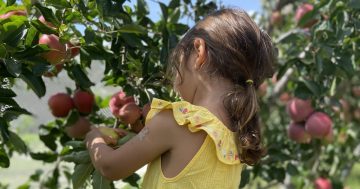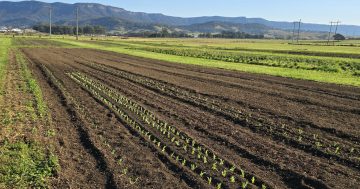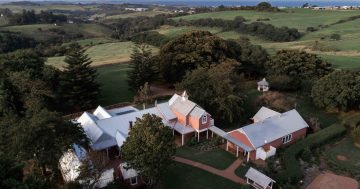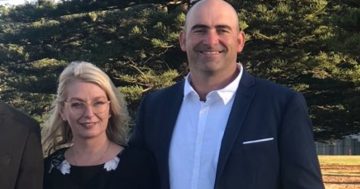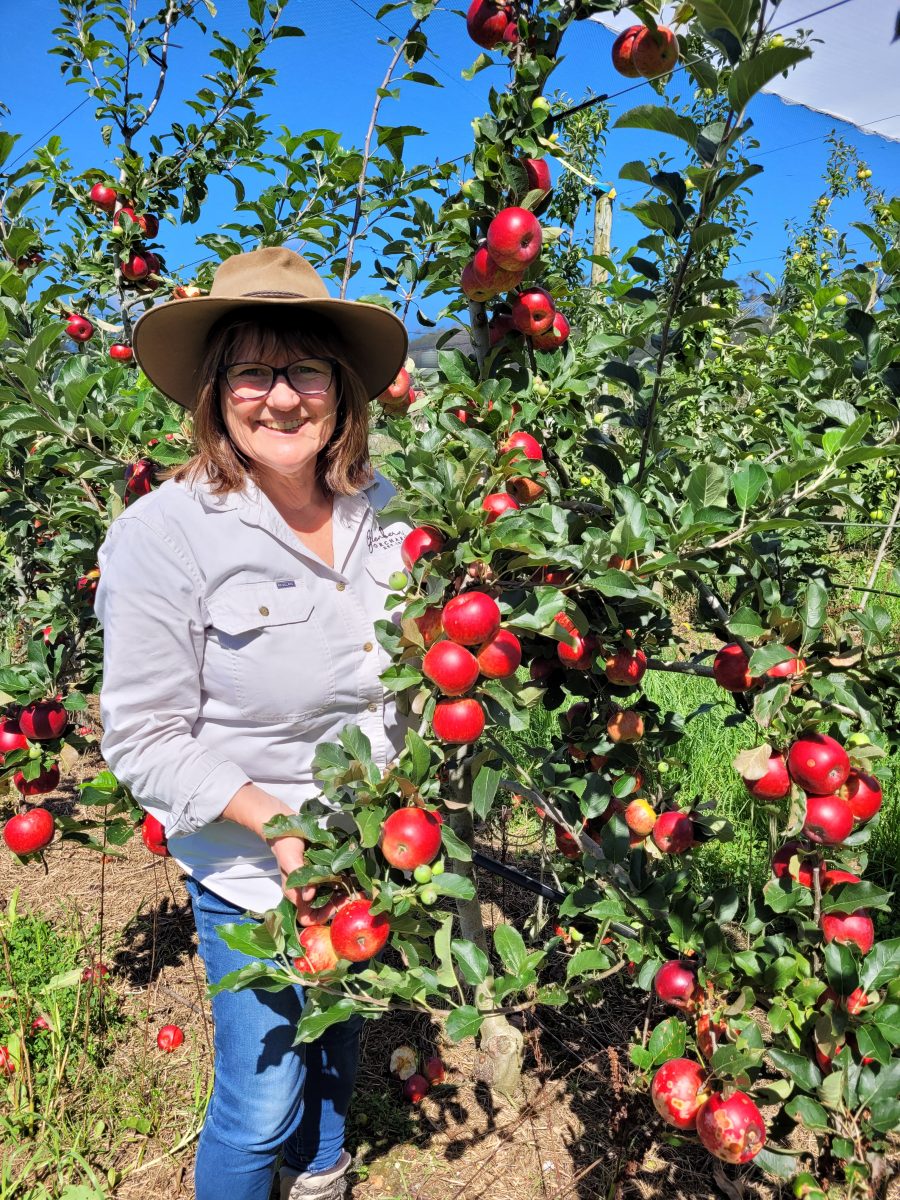
Jo Fahey of Glenbernie Orchard. Photo: Graeme Burrill.
The last fruit orchard in the Illawarra, Glenbernie has undergone many changes over the years simply to stay afloat, but its future looks bright in the hands of the sixth-generation farming family.
The Darkes Forest orchard’s roots go back to 1939, when it began with the aim of keeping the Fahey family safe during the onset of war.
With 35 years on the farm and a background in education, Jo Fahey is now general manager of Glenbernie Orchard, which is situated within an hour’s drive from most of Sydney and roughly 30 km from the centre of Wollongong.
She said the farm was initially tree-covered, but it was apparent that the soil and land were good for farming.
In the early days, the trees were cut and sold for firewood, with sales stretching from southern Sydney to Port Kembla.
As well as raising chickens, the family experimented with growing potatoes and vegetables first, but in the end it was fruit trees that were to provide a better way of living.
“They started off by selling the majority of that fruit from the farm in the first instance,” Jo said. “Then taking it to the markets in Sydney where they’d been selling their potatoes and it went on from there.”
Following their first large crops, it was the seconds that were on offer at the farm.
“The first-grade fruit was sold to the supermarkets, and our second-grade and ripe fruit was sold from the farm,” Jo said.
“That’s changed because as you move from the 1950s, 60s and 70s, then into a more modern context, society has changed.
“In the 1990s people started to want to visit the farm and pick their own.”
Formal farm tours were introduced, and they continue to this day.
A tractor train takes visitors on a tour giving them a better understanding of how the orchard works and they can pick the fruit, including the various types of apples that they grow – Fuji, Royal Gala, Granny Smith, Pink Lady, Delicious and Jonathan.
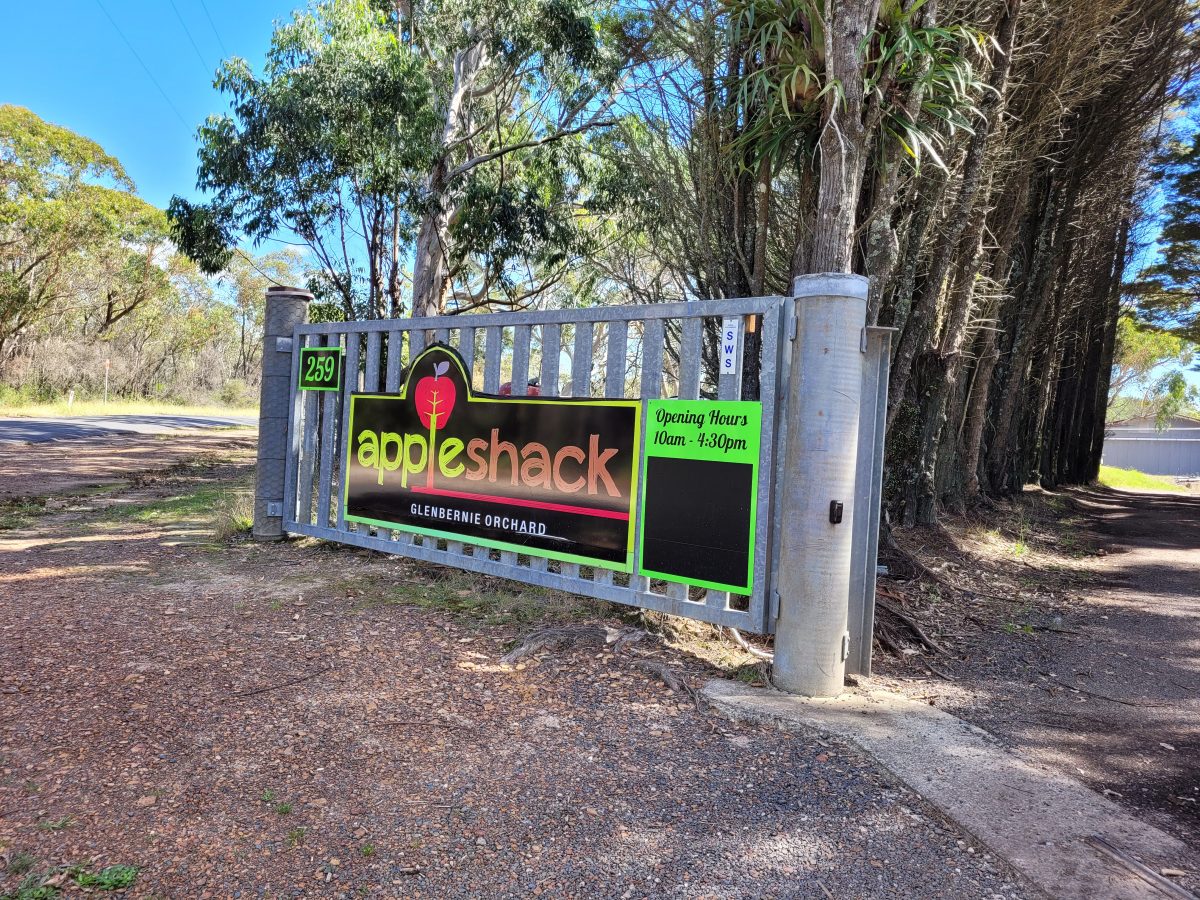
Glenbernie Orchard is now a popular place to visit. Photo: Graeme Burrill.
About this time, the commercial sale of fruit started to change too, and it was no longer viable for the Faheys to sell their first-grade fruit at the supermarkets.
“So instead of selling the seconds, which we started out doing back in the 1960s and 70s, we began selling our best fruit from the farm,” Jo said.
“In fact, we’ve now moved on, we’re selling all of our fruit from the farm and none is going to the commercial supermarket system at all. Everything is being sold from here.
“That’s just literally because, in order for us to be able to sustain our farm, we can’t do that on the wholesale prices that we get for fruit.”
And so, Glenbernie Orchard went down the path of a retailer with value-adding – making something out of their base products.
“Our seconds fruit now goes into making juice and making cider,” Jo said.
This process of value-adding has become a lifeline for the farm, which has survived when other orchards have fallen by the wayside.
It’s something Jo is proud of.
“I’m seeing many farms disappear,” she said. “Not just around Wollongong, but right across the country.
“I think the fact that we are still here is a major achievement, and the fact that on top of that, we’ve actually continued to grow the business. I’m quite proud of the fact that we’ve been able to create new brands.”
The orchard now produces the acclaimed Darkes Cider, which has picked up several awards over the years for both their apple and Perry (pear) cider.
After visiting her orchard, Jo hopes people will become more knowledgeable about fruit.
“Firstly to understand a little bit more about the fruit or the food that they’re taking home, so they’ll know how to store it. They’ll know how to prepare it, to eat it.”
Looking ahead, there are exciting plans for the future, including the idea of a cidery, cafe and a bigger retail area.
Jo said this would take investment, both in terms of money and in terms of time, effort and energy that they will personally put in.
For information on Glenbernie Orchard or to book a tour, click here.









